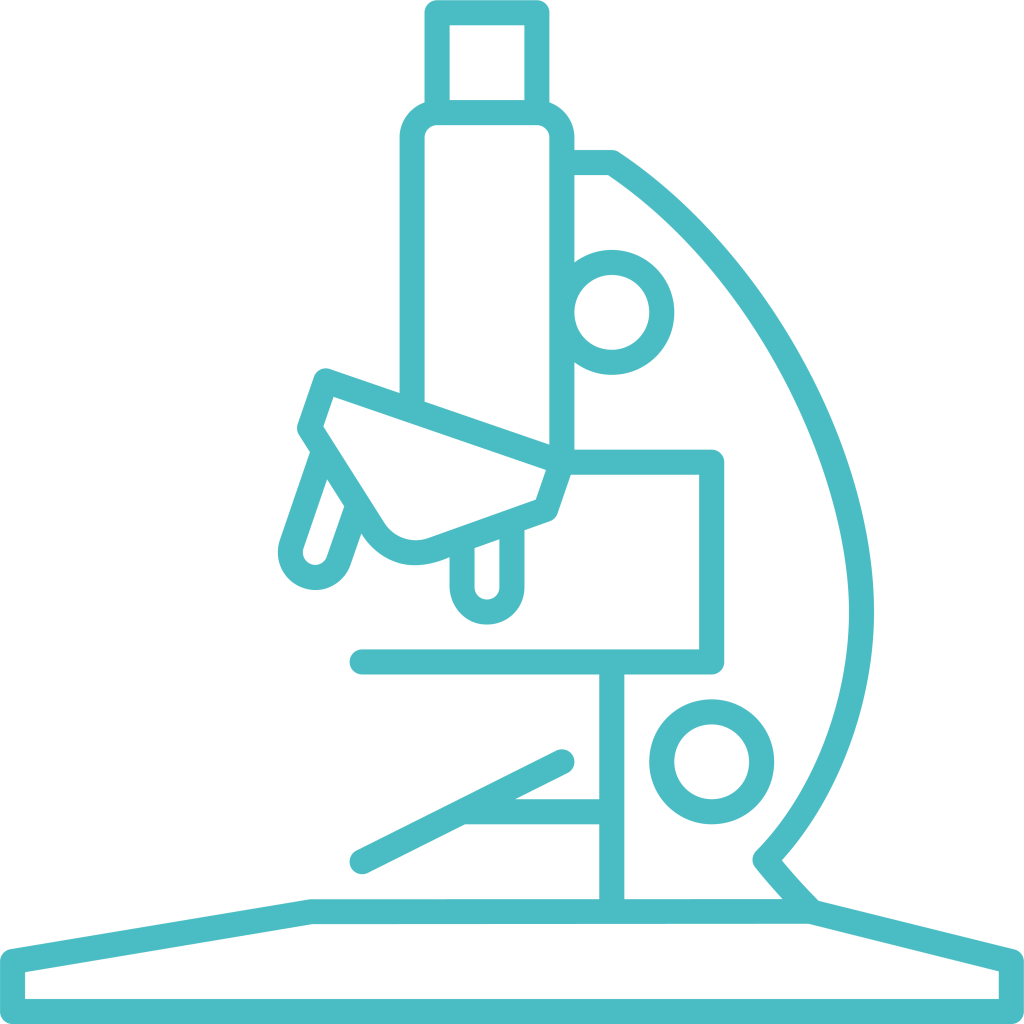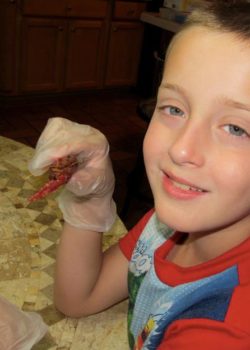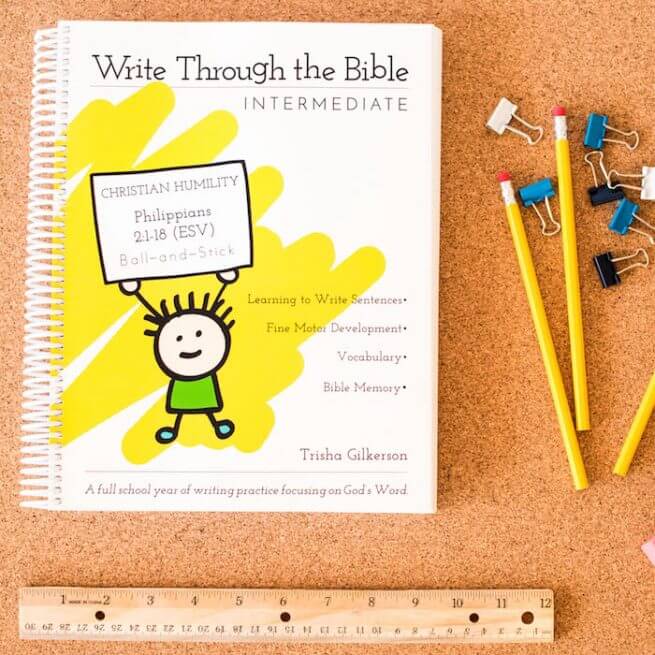In public high school, science was full of adventure.
I remember pulling the same fetal pig out of the same plastic bag for 5 days in a row, and by the end of that week, I was pretty sure the organs were completely in the wrong place.
In chemistry, we loved watching our teacher make things steam, foam, fizzle, pop, and explode.
In physics, we loved watching our teacher drop random objects off the top of the second floor of the school building into the parking lot to demonstrate wind friction.
When my wife and I decided to homeschool our kids, as the high school years approached, we asked ourselves: How can our kids learn science at home in an engaging way? We wanted to do science as well (or better) than a public school.
6 Tips for Teaching High School Science at Home
If this has been a question you’ve had, here are 6 tips we’ve personally found very helpful.
1. Model excitement about the sciences.
Educators called it “inspired relevancy“—when a student becomes interested in something because someone they love or admire has a sincere enthusiasm about it.
Now, of course, you may not have a keen interest in biology, chemistry, physics, or astronomy—but you probably do find certain facts in those subjects fascinating…
- Who doesn’t find it fascinating to learn how a reticulated python can swallow a person whole?
- Who doesn’t like watching a gummy bear explode as it’s dropped into potassium chlorate?
- Who doesn’t think it’s intriguing watching video footage of the weird, hexagon-shaped storm on Saturn?
- Who doesn’t like the idea of making a LEGO man zip line to teach kids about gravity, slope, and tension?
Whatever your child is learning about in science, find those factoids and ideas you genuinely find interesting and wear your curiosity on your sleeve—it will be contagious!
2. Spark interest through field trips.
Make field trips a regular part of what you do so your students can learn to love the natural world. Make them a priority and put them on your calendar (so you actually do them).
I love taking my kids to science museums and just spending the whole day there! We love taking advantage of all the live demos and hands-on activities. Plus, the whole family can tag along — from the youngest in a a stroller to the oldest teenager (and even mom and dad have fun too).
For sparking their interest in biology, go to zoos, natural history museums, and aquariums. For astronomy, look for a good observatory or planetarium.
You can even take part in nature studies and seminars put on by your local DNR or Wildlife Management office.
How do you make the most of these field trips? Make it fun for them.
- Have an artsy student? Give them a sketchbook and have them draw things that inspire them.
- Turn it into a photo scavenger hunt. Give your teens a time limit and give them a list of things they need to snap a picture of—if they complete it, they get a treat. Don’t make it easy like, “Take a picture of a tiger.” Make it so they have to do a little reading, like, “Take a picture of an aquatic mammal,” or “Take a picture of a nocturnal animal.”
3. Labs are not optional. They are essential.
I know it’s easy to sign up for a curriculum that is textbook-based. It’s simple, predictable, and involves no mess.
But it also involves no fun.
Don’t skip the experiments. Embrace the mess and delight in the fact that your student will learn a whole lot more by getting their hands dirty than they’ll ever learn by merely reading. I know it might be a hassle to drive to the butcher shop—but the look on their face when they slice into a cow eyeball or a pig heart will be priceless.
While studying science can be challenging, alleviate the boredom factor through engaging activities.
And when you’re looking for a good science curriculum, make sure whatever labs are given have easy-to-use instructions—better yet, video instructions—to take the work out of it for you.
(Our Experience Biology and Experience Chemistry courses contain detailed lab videos with every lab experiment.)
4. Don’t be afraid to give your kids a choice…
Kids learn when they’re motivated by their own interests.
For our oldest, while we wanted him to have the “core” sciences of biology, chemistry, and physics, for his 4th year of high school we gave him the choice of whatever science he wanted to learn.
When you’re previewing science resources, once you’ve narrowed down what you like, bring your teen into the discussion and ask, “What would you prefer to do?”
5. …but also don’t be afraid to challenge them with full credit courses.
In the high school years, it’s important to push your teens to learn subjects they find challenging and robust (whether or not they’re college bound).
Challenging our children to excel through difficult subjects isn’t merely for the sake of “getting the grade.” Educational research shows: intelligence is not the big predictor of success later in life, but rather “grit,” a mentality that chooses to push through challenges to get to long-term goals.
Science is a great way to practice that.
Depending on the laws of your state and your teen’s college ambitions, you should consider several years of full-credit laboratory sciences. A good rule of thumb is if your teen is spending an average of 1 hour a day, 5 days a week, for 35 weeks, it is considered a full credit lab science course.
(Both our Experience Astronomy: Advanced and Experience Biology: Advanced courses are considered full credit lab science courses.)
6. Be consistent: schedule time for each piece.
One of the most important disciplines we started as a homeschool family is giving our kids gradual control of how their schedule is set.
In the early elementary years, we largely set the agenda for each day. In later elementary years, we gave them their weekly goals, but we started giving our kids a say in how much they did and what days. By high school, we give them even more freedom with their daily routines, helping them keep in mind their bigger, long-term high school goals.
Experience Science
In our homeschool science courses— Experience Astronomy, Experience Biology, Experience Chemistry, and Earth Science Explored—we’ve worked hard to fill them with a contagious excitement. These lab science courses will inspire your kids to experience and love the sciences!
















Leave a Comment